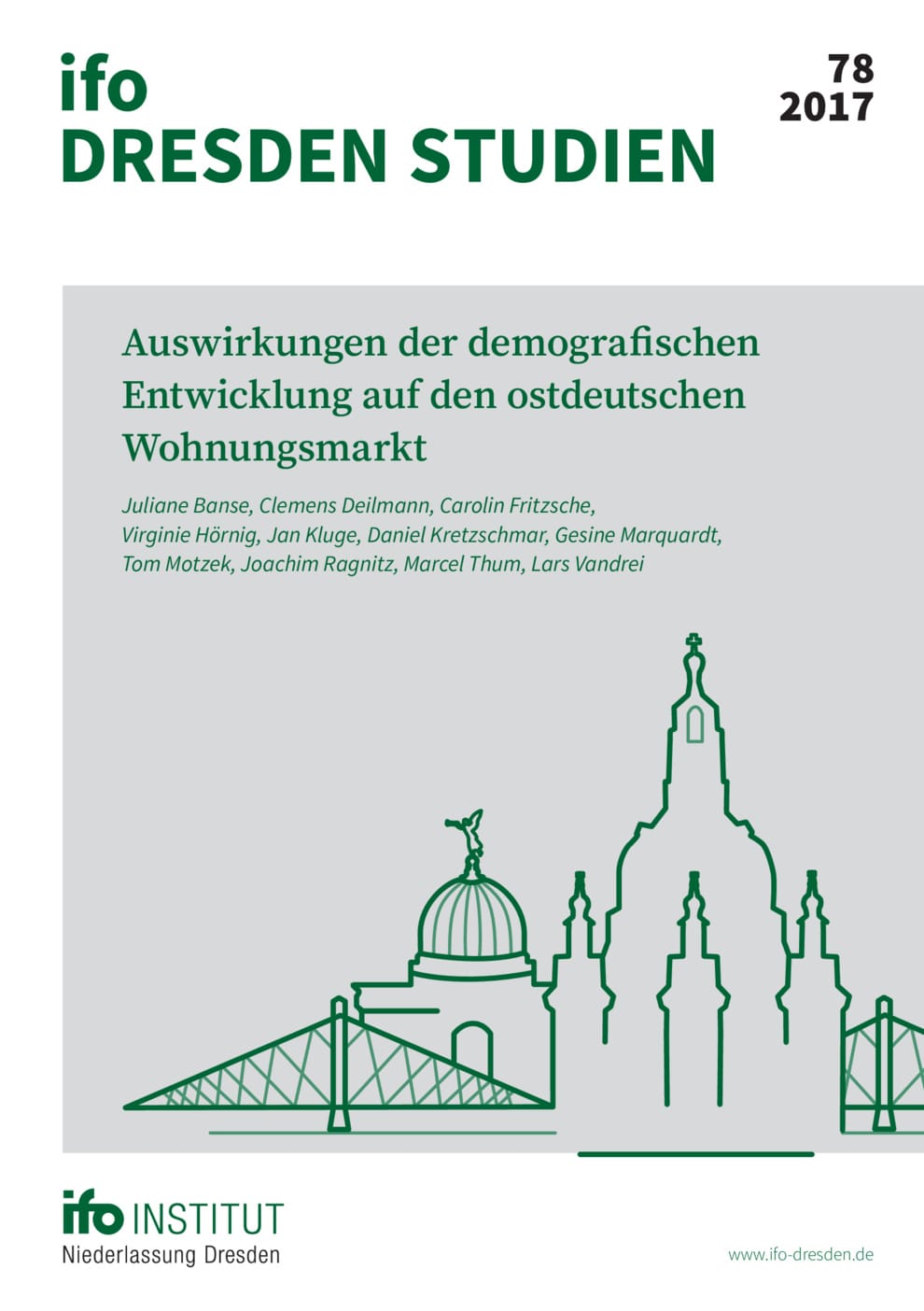Auswirkungen der demografischenEntwicklung auf den ostdeutschenWohnungsmarkt
ifo Institut, München, 2017
ifo Dresden Studien / 78

On behalf of the Federal Ministry for Economic Affairs and Energy, this report is carried out together with the Leibniz Institute of Ecological Urban and Regional Development (IÖR) and Gesine Marquardt (Professor for Social and Health Care Buildings and Design at TU Dresden). We analyze to which extent the Eastern German housing market is prepared for current and future demographic developments such as a shrinking and ageing society. First we present socio-economic characteristics of Eastern Germany and the current situation of the Eastern German housing market. In face of a fast ageing society, we study trends and possible challenges for the Eastern German housing market with regard to age-appropriate living. Furthermore, we look at the present subsidy system and housing regulations. Key results of our study are: • The Eastern German housing market is characterized by high vacancy rates with great differences between urban and rural areas, a very old housing stock and low ownership rates. • More than one million dwellings will be vacant until the year 2030 and a new wave of low occupancy is to be expected for shrinking regions. • There is a high demand for barrier-free residential space. In Eastern Germany, only 4.4 % of all dwellings with one or more elderly inhabitants have no or almost no barriers. • The German states set different priorities in their housing policies and already meet many challenges of the demographic development.